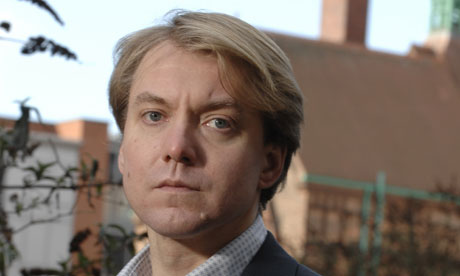
Anthony Cartwright was born in Dudley in 1973 and studied English and American literature at UEA before training as an English teacher. In 2004, his debut novel, The Afterglow, won the Betty Trask award and the follow-up, Heartland, was shortlisted for the Commonwealth Writers' prize in 2010. He now lives in London.
I hear your latest book, How I Killed Margaret Thatcher, was the working title of your two previous novels…
I said it as a joke, but it's true. While I was writing Heartland, my last novel, part of a loosely connected series about Dudley and the Black Country, it became clear that in order to finish what I was working on I would have to write about the 1980s and actually confront the issue of Margaret Thatcher head on, though her presence is there in the first two books, in the sense that characters talk about that time and reflect on how it transformed their lives and communities.
Why did you choose to target Thatcher?
She was such a divisive and a totemic figure. As much as she's a real person, she became symbolic of what was happening in Britain in the 80s. I wanted Thatcher's actual words in the book, at the start of each chapter, to show the contrast between power and powerlessness and to suggest that the characters are powerless because Thatcher is creating the world they have to live in.
How did the story emerge?
The character of Sean Bull, a nine-year-old from Dudley, came first. The early 80s part is told in the voice of a child because of the sense of powerlessness, common to all children, but I think it applies to the adults equally. Sean sees very powerful characters around him, like his dad and his grandad, made powerless by unemployment.
How does the book's plot relate to the promise of the title?
The title is intended to provoke a reaction. And plenty of the characters in the novel want Margaret Thatcher stopped. Her name also represents a wider attitude, though, one of envy and resentment towards certain working-class communities that Sean feels he has to fight against. He feels someone is trying to destroy his world, so at one point he decides to fight fire with fire.
How long did it take to write?
Two years. It became more complicated and painful, just because a lot of the issues still exist. We haven't really dealt with the legacy of the Thatcher government and that was why I included a voice speaking now as well, showing Sean still trying to deal with that damage.
What are you reading at the moment?
Weirdo by Cathi Unsworth – murder and teenage rampage in a Norfolk seaside town, set in the early 80s and now; Pack Men by Alan Bissett – about a group of Rangers fans who arrive in Manchester for the 2008 Uefa Cup final.
What was the last truly fantastic book you read?
Best and Edwards by Gordon Burn, a double biography of football players Duncan Edwards and George Best, linked by Manchester United and very different tragic deaths. It's a book about British society, working-class culture, families, Manchester, Belfast and Dudley. It is very, very sad.
Read any embarrassing books recently?
When I was preparing to write How I Killed Margaret Thatcher, I took several books about her out of the library. Carrying them around verged on the dangerous. Thatcher for Beginners was a low point.
Which Dudley writers do you recommend?
The Black Country has a really strong tradition of storytelling. The novelist Francis Brett Young was from Halesowen and wrote a series of linked novels set in the West Midlands that merged real places with fictional ones. I guess Jerome K Jerome might be the region's most famous novelist. He was from Walsall and his work contains the strong vein of humour that runs through Black Country culture.
Which author have you been most disappointed by?
DH Lawrence. I found the relationships between people in his novels a bit strange and the whole atmosphere a bit overwrought.

